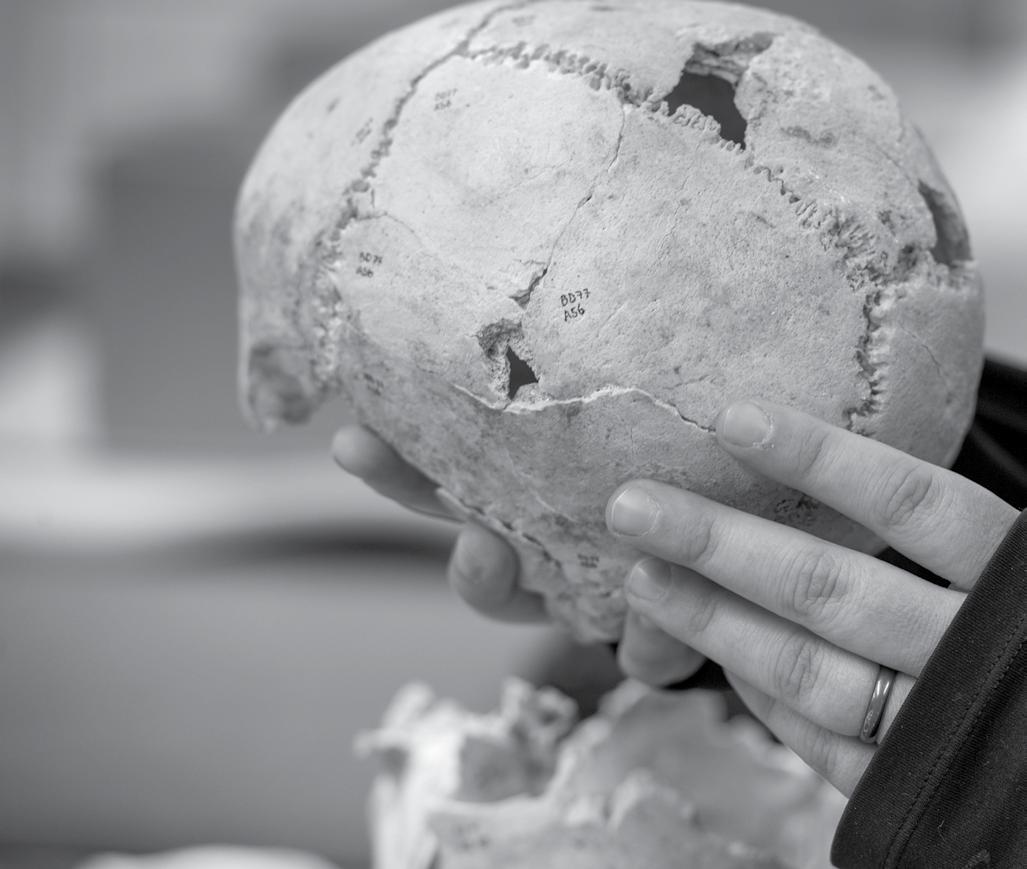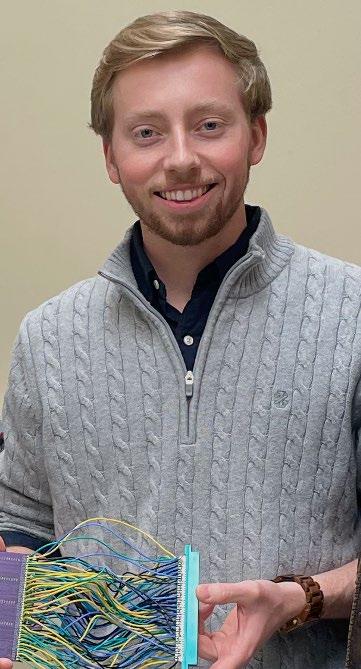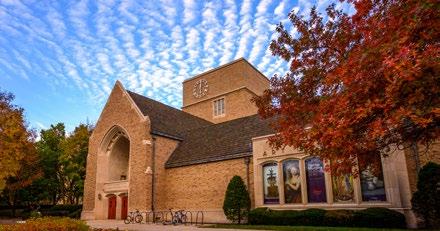Undergraduate Research
at the University of Notre Dame







MILLION IN RESEARCH AWARDS IN FY24

Notre Dame has built a recognized research enterprise, one that continues to advance, including through its selection for inclusion into the Association for American Universities (AAU).
What further sets Notre Dame apart, however, is the extent to which students have the opportunity to engage in original research and collaborate in faculty research projects.
Whether you plan to pursue graduate studies or immediately embark upon a career, you will benefit in several ways from participation in research projects. You’ll develop skills in active learning that are applicable in many other settings and explore a topic of interest to you in greater depth than possible in classroom courses. And you’ll gain valuable experience in working as part of a team—in collecting, organizing, and analyzing data—and in communicating the results of your work.
1/3

Employer expectations, along with wider recognition of the value of research experience, have led to steady growth in the number of undergraduates engaged in research.
Today, more than one-third of all Notre Dame undergraduates participate in original research with a faculty mentor—a number that continues to rise.
At Notre Dame, you will have the opportunity to pursue independent research and creative projects through a variety of programs in our vibrant research atmosphere.
The Undergraduate Research Opportunity Program is offered through the University’s Institute for Scholarship in the Liberal Arts. This program provides both academic-year and summer grants, which can be used to fund independent research, creative projects, or the presentation of student research at conferences.
Through the Research Experiences for Undergraduates Program, students have the opportunity to gain STEMfocused research experience on campus or abroad with Notre Dame faculty over the summer.


Through CUSE, students can learn how to apply for grant funding for a variety of different types of projects. Additionally, CUSE offers workshops and personalized advising to help students get started in research, connect to faculty mentors, and apply for grants and fellowships. Visit cuse.nd.edu for further information.

The Flatley Center for Undergraduate Scholarly Engagement (CUSE) inspires and enables Notre Dame undergraduates to undertake experiences that engage their scholarly interests with the aim of transforming themselves and their communities in the pursuit of human flourishing and the common good.
Stimulates the life of the mind across campus by building a scholarly community to engage and support students in intellectual and creative pursuits inside and outside of the classroom.
Creates opportunities for undergraduate research, scholarship, and creative endeavors in all colleges and schools by connecting students to resources such as faculty mentors, projects, funding, and venues for presenting and publishing their work.
Encourages and facilitates students’ applications for nationally competitive fellowships, such as Rhodes Scholarships and Fulbright Awards.
JEFFREY F. RHOADS Vice President for Research

“I would not be in academia if it wasn’t for students.
Often when people think about research [in higher education], they think about a decision between whether you’re going to be teaching-focused or research-focused. I find it to be a false narrative.
Students are central to what we do with research at a university, whether that’s undergraduate or graduate researchers. Research is part of the educational process, because research is about teaching people how to think and discover; how to be analytical and deductive and reasoned.
Research is a complement to what happens in the classroom. And it’s really those two things together that I think make a world-class university like Notre Dame.”
For Richard McManus, Jr., Notre Dame was a place to explore big ideas for improving microelectronics. The electrical engineering major from Nebraska worked alongside computer science and engineering professor Matthew Morrison and two of his fellow students to produce a layout for a microprocessor. A CUSE Sorin Scholar and Grand Challenges Scholar, he also worked with Gregory Snider, professor and chair of the Department of Electrical Engineering, on new technologies for quantum computing. McManus even explored his passion for advancing technology by launching his own startup company, Mound Power, LLC, which specializes in force-measuring devices that can help reduce injuries and improve performance among baseball pitchers.

Notre Dame is renowned for excellence in undergraduate teaching, an excellence that is matched by our faculty’s research and creative endeavors. This combined distinction in teaching and research makes our faculty world-class mentors.


Kendra Lyimo, a first-generation college student from Minnesota, conducted undergraduate research on multiculturalism and identity in the contemporary art of Africa and the African diaspora. The art history major, who also pursued minors in Italian and Africana studies, completed a study abroad program at Notre Dame’s Rome Global Gateway, where she studied the work of Afro-Italian artists. While abroad, she spent most of her days in the heart of Rome, combing through the more than 360,000 titles held by the Bibliotheca Hertziana, a world-renowned research institute for studying Italian art history that sits above Rome’s Spanish Steps. Lyimo is building on this research experience as an awardee of the Beinecke Scholarship, which provides funding for her to continue her work on East African art and its ideas in graduate school. Lyimo will study in the United Kingdom as a Marshall Scholar.
Today, most Notre Dame undergraduates expect to have robust opportunities to engage in original research. It is no longer incidental to their programs of study. This is reflected in the continuously rising percentage of undergraduates who are engaged in research.
Michelle Kwok discovered a passion for high-energy physics research at Notre Dame. The physics and philosophy double major conducted research alongside Christopher Kolda, professor of physics and astronomy at Notre Dame, to explore the mysteries of dark matter and primordial black holes.
Thanks to the National Science Foundation’s Research Experience for Undergraduates (REU) program, the Indiana native was able to conduct research at the Large Hadron Collider (LHC), the world’s largest and most powerful particle accelerator, near Geneva, Switzerland. In her junior year, Kwok studied abroad in Dublin, Ireland, and received a Goldwater Scholarship, which recognizes exceptional promise in students who intend to pursue research careers in the natural sciences, mathematics, and engineering.


Today, employers and graduate schools expect that undergraduates will have had practical, real-world experience. Notre Dame undergraduates are leading the way to research discoveries, helping to win grants, publishing academic articles, and securing patents.


At Notre Dame, Solomon Duane was able to benefit from Notre Dame’s broad approach to research, which includes all forms of scholarship alongside creative endeavors. Duane, an architecture major and musical theater minor, gained hands-on experience during his internships at architecture firms in Boston, Massachusetts, and Nashville, Tennessee, and traveled to Vienna, Austria, to study the life and work of Ludwig van Beethoven. The architecture of Cuba energized his fourth-year project. Under the direction of Professor Julio Cesar Perez Hernandez, Duane envisioned a massive performing arts theater for the city of Havana. A Scott Scholar in the Notre Dame Scholars’ Program and member of the Glynn Family Honors Program, Duane also composed a musical play that had a two-week sold-out run at Notre Dame’s DeBartolo’s Performing Arts Center.
As a finance major with minors in poverty studies and public service, CUSE Sorin Scholar Ashley Cammiso wanted to put her business background to use in solving social problems through microfinance work. A member of the Business Honors Program, Cammiso studied in Washington, DC, during her sophomore year and gained hands-on experience at the German Marshall Fund, an international think-tank focused on transnational cooperation between North America and Europe. Cammiso followed up this experience with an internship at the Vatican and language study in Brazil as part of the U.S. Department of State’s Critical Language Scholarship program. Back on campus at Notre Dame, Cammiso conducted an independent research project on childhood poverty in Indiana and even presented her findings to the Indiana Governor’s office.
COLLABORATIONS
Notre Dame’s low student to faculty ratio allows our students unparalleled access to research opportunities and one-on-one mentorships with faculty scholars in their chosen field of study.


The sense of discovery and the spark of a new idea are transformative moments for an undergraduate student. Notre Dame undergraduates participating in original research help forge these moments, thereby instigating change for a better world.

IGNITING CURIOSITY

Bupe Lughano Kabaghe aspires to become the President of her native country, Zambia. To gain experience in parliamentary government, the political science and global affairs major interned at the British House of Commons while studying abroad at Notre Dame’s London Global Gateway. For her senior thesis and capstone, Kabaghe, who is a Hesburgh-Yusko Scholar and a Kellogg International Scholar, conducted a study of women’s representation and participation in the Zambian National Assembly. Her project focused on the pathways to political leadership for Zambian women with an emphasis on participation and representation. She also conducted projects for her Non-Governmental Organization, Abana Afrika Foundation, which seeks to empower the next generation of Zambian youth.
Notre Dame students are called to be constantly curious about the world and cultures around them. A deep research experience, whether international or domestic, allows students to expand their understanding, transform their thinking, and enrich the community.

The University of Notre Dame is committed to supporting a culture of research, scholarship, and creative endeavor throughout campus, in order to be a repository for knowledge and a powerful means for doing good in the world.
Research at Notre Dame has paved the way for new discoveries, unlocked knowledge, and improved technologies. Further, Notre Dame has a long history of research. The aerodynamics of glider flight, the transmission of wireless messages, and the formulae for synthetic rubber were pioneered at the University. Today, the University supports and encourages innovation in numerous core facilities and resources, as well as in a number of key areas of research, including cancer, environmental change, global health, turbomachinery and propulsion, and many more.
Inspired by the University’s Catholic mission, Notre Dame’s world-class faculty and students together are pursuing globally significant, solutions-oriented research as Notre Dame’s research enterprise grows in line with President Rev. Robert A. Dowd’s vision: “as a premier Catholic research university, our research and learning drive insights, innovation, and impact for good around the world.”
LEARN MORE AT RESEARCH.ND.EDU

317 Main Building
Notre Dame, IN 46556 USA